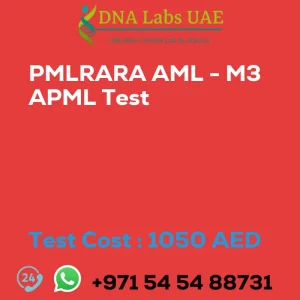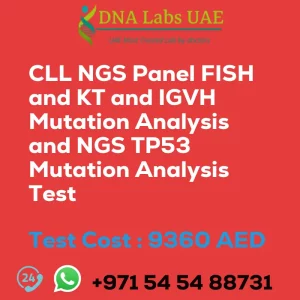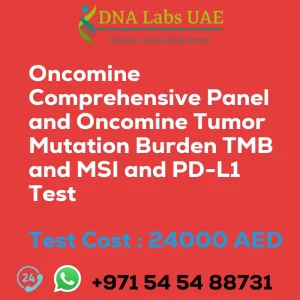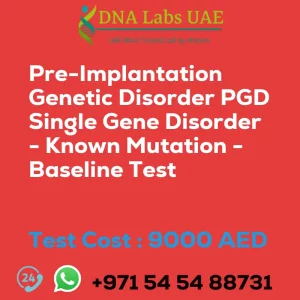MAFIgH MM Test – Cost, Symptoms, Diagnosis
Test Name: MAFIgH MM Test
Components: Sodium Heparin Vacutainer (2ml)
Price: 1050.0 AED
Sample Condition: Bone Marrow / Peripheral blood
Report Delivery: 3-4 days
Method: FISH
Test Type: Genetics
Doctor: Oncology
Test Department:
Pre Test Information: MAF/IgH (MM) can be done with a Doctor’s prescription. Prescription is not applicable for surgery and pregnancy cases or people planning to travel abroad.
Test Details
MAF/IgH (MM) stands for “MAF (MafB) and IgH (Immunoglobulin Heavy Chain)” translocation in multiple myeloma (MM). Multiple myeloma is a type of cancer that affects plasma cells, which are a type of white blood cell that produces antibodies.
In some cases of multiple myeloma, there is a genetic abnormality called a translocation, where parts of two different chromosomes break off and swap places. The MAF gene, specifically the MafB protein, and the IgH gene (Immunoglobulin Heavy Chain gene) are involved in this translocation. The MafB protein is a transcription factor that regulates gene expression, while the IgH gene is responsible for the production of antibodies.
The MAF/IgH translocation in multiple myeloma results in the overexpression of MafB, which can lead to abnormal cell growth and proliferation. It also affects the regulation of the IgH gene, leading to dysregulation of antibody production.
Understanding the MAF/IgH translocation in multiple myeloma is important for diagnosis, prognosis, and treatment planning for patients with this type of cancer. It may also serve as a potential target for therapeutic interventions in the future.
| Test Name | MAFIgH MM Test |
|---|---|
| Components | Sodium Heparin Vacutainer (2ml) |
| Price | 1050.0 AED |
| Sample Condition | Bone Marrow \/ Peripheral blood |
| Report Delivery | 3-4 days |
| Method | FISH |
| Test type | Genetics |
| Doctor | Oncology |
| Test Department: | |
| Pre Test Information | MAF/IgH (MM) can be done with a Doctors prescription. Prescription is not applicable for surgery and pregnancy cases or people planing to travel abroad. |
| Test Details |
MAF/IgH (MM) stands for “MAF (MafB) and IgH (Immunoglobulin Heavy Chain)” translocation in multiple myeloma (MM). Multiple myeloma is a type of cancer that affects plasma cells, which are a type of white blood cell that produces antibodies. In some cases of multiple myeloma, there is a genetic abnormality called a translocation, where parts of two different chromosomes break off and swap places. The MAF gene, specifically the MafB protein, and the IgH gene (Immunoglobulin Heavy Chain gene) are involved in this translocation. The MafB protein is a transcription factor that regulates gene expression, while the IgH gene is responsible for the production of antibodies. The MAF/IgH translocation in multiple myeloma results in the overexpression of MafB, which can lead to abnormal cell growth and proliferation. It also affects the regulation of the IgH gene, leading to dysregulation of antibody production. Understanding the MAF/IgH translocation in multiple myeloma is important for diagnosis, prognosis, and treatment planning for patients with this type of cancer. It may also serve as a potential target for therapeutic interventions in the future. |








